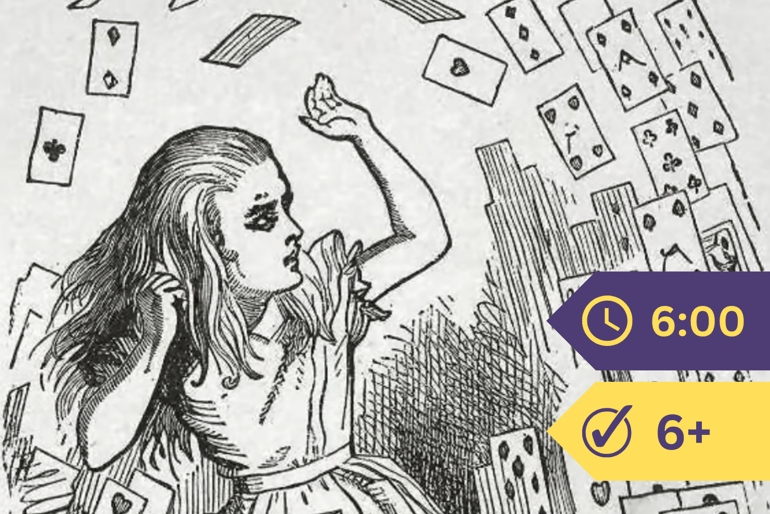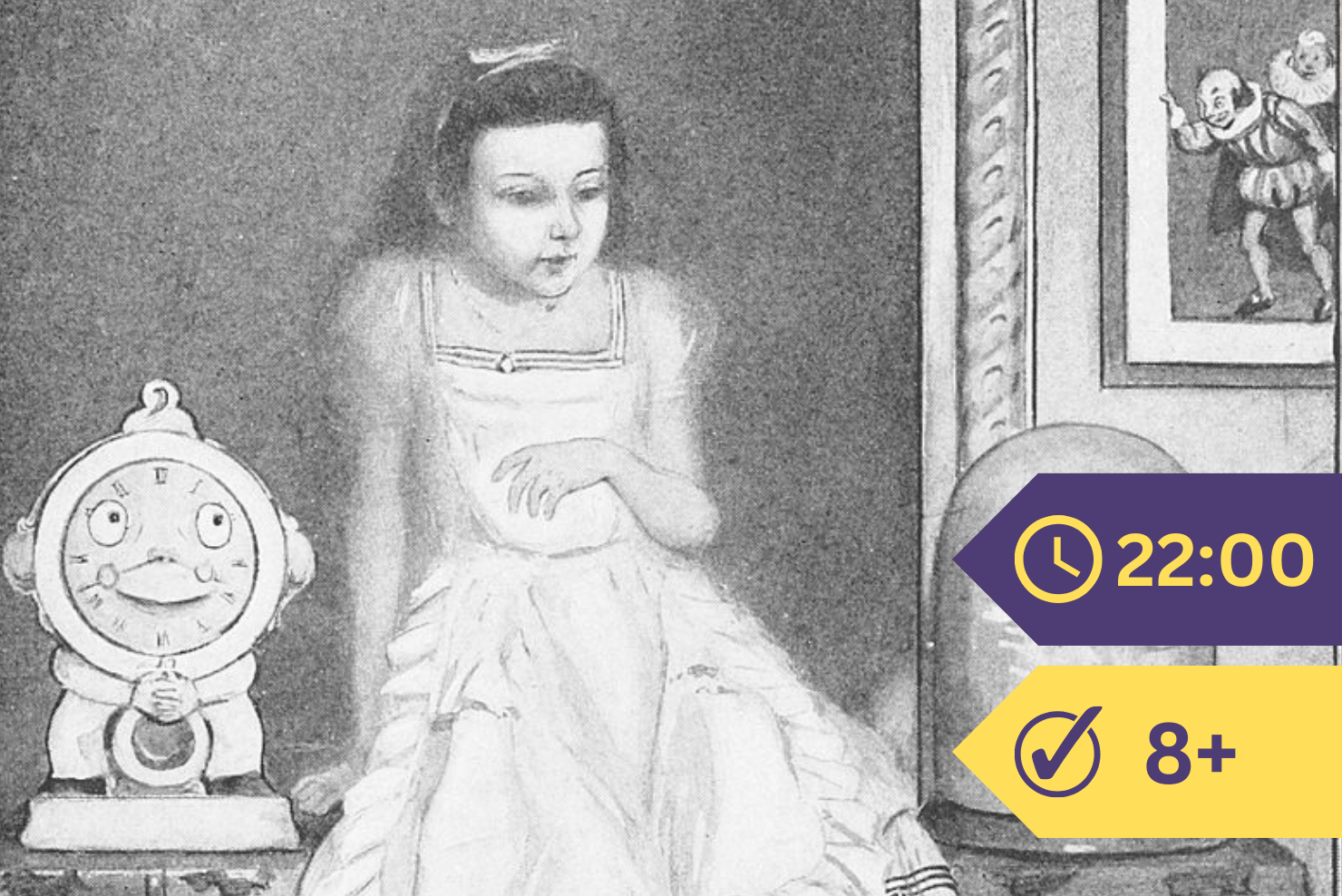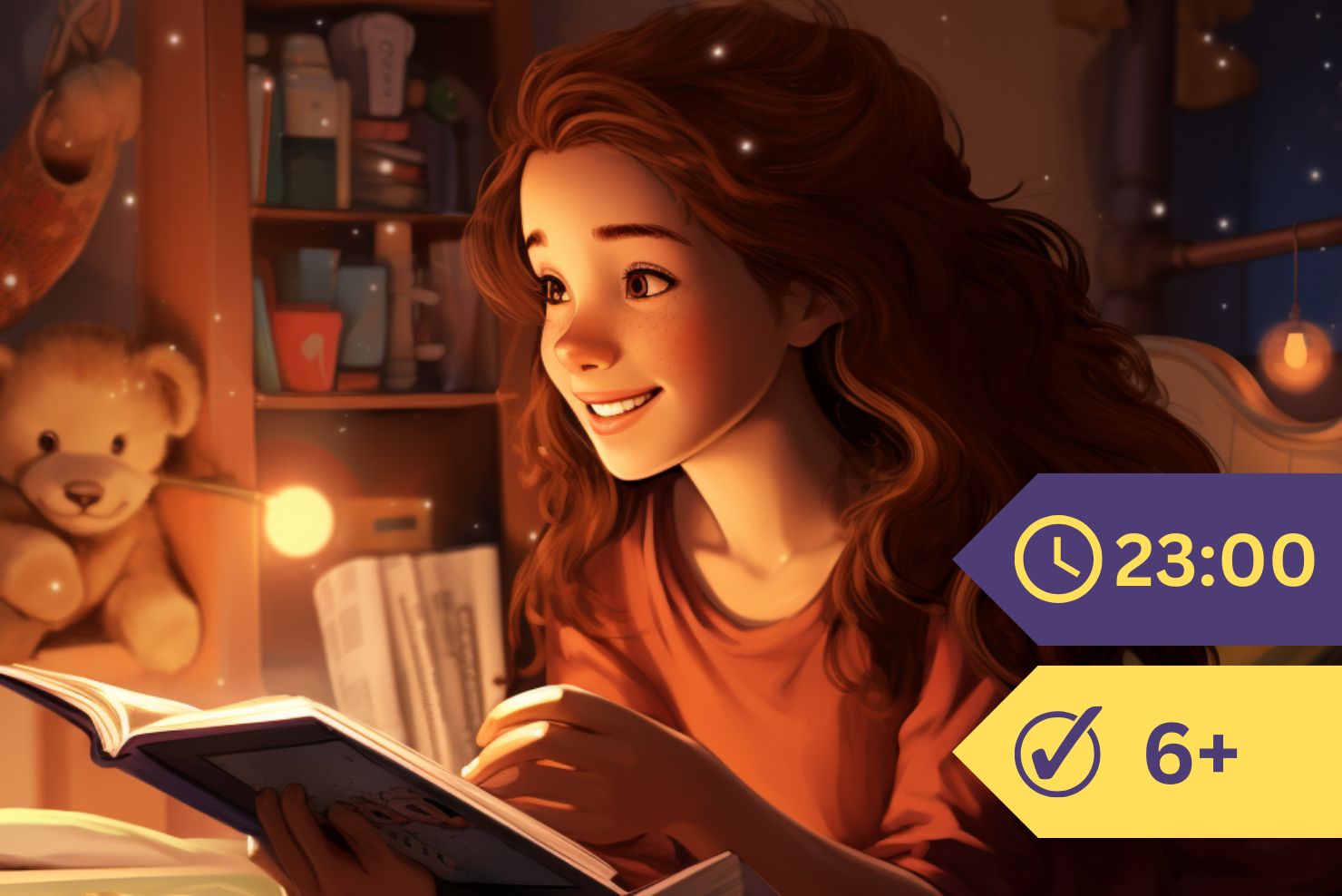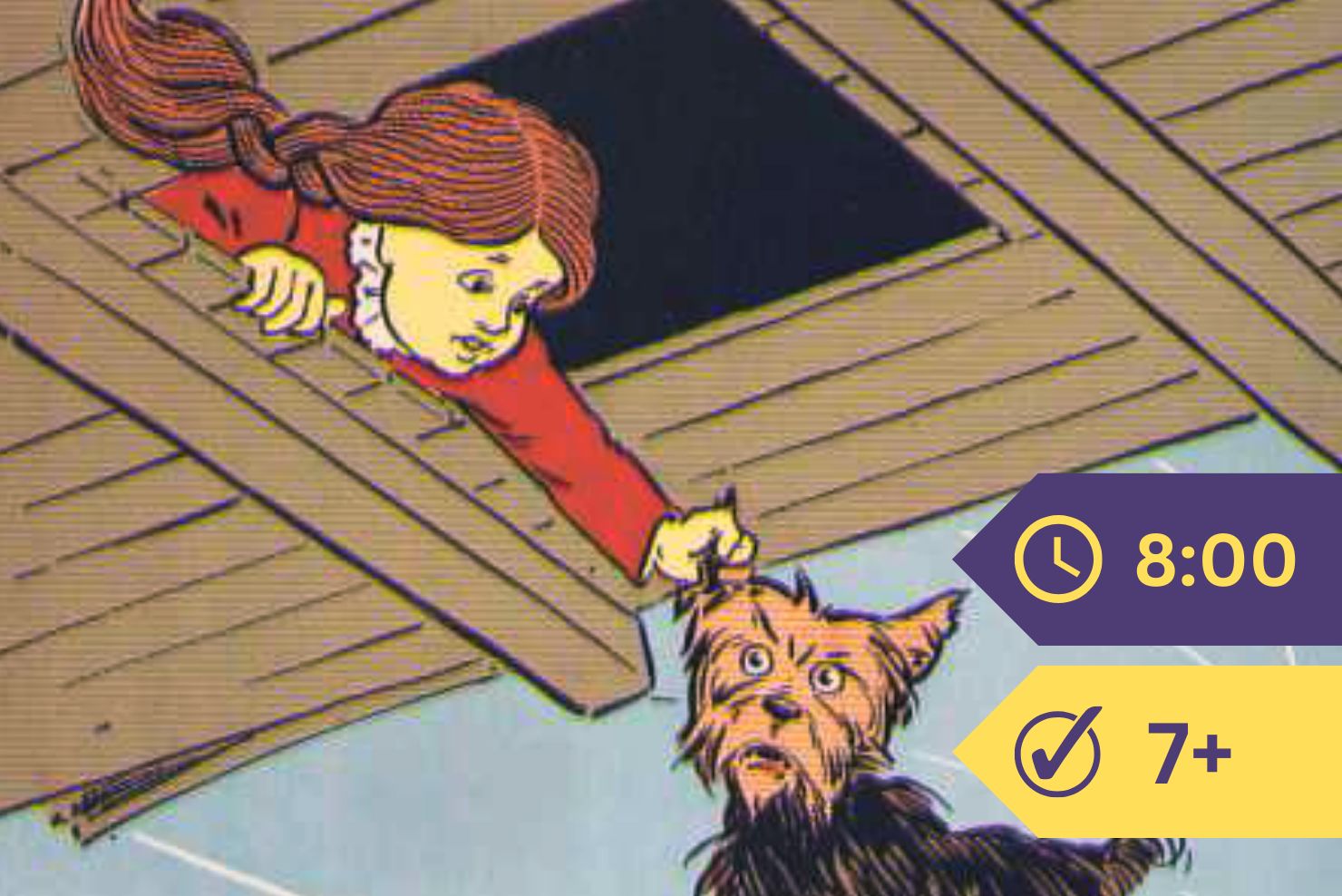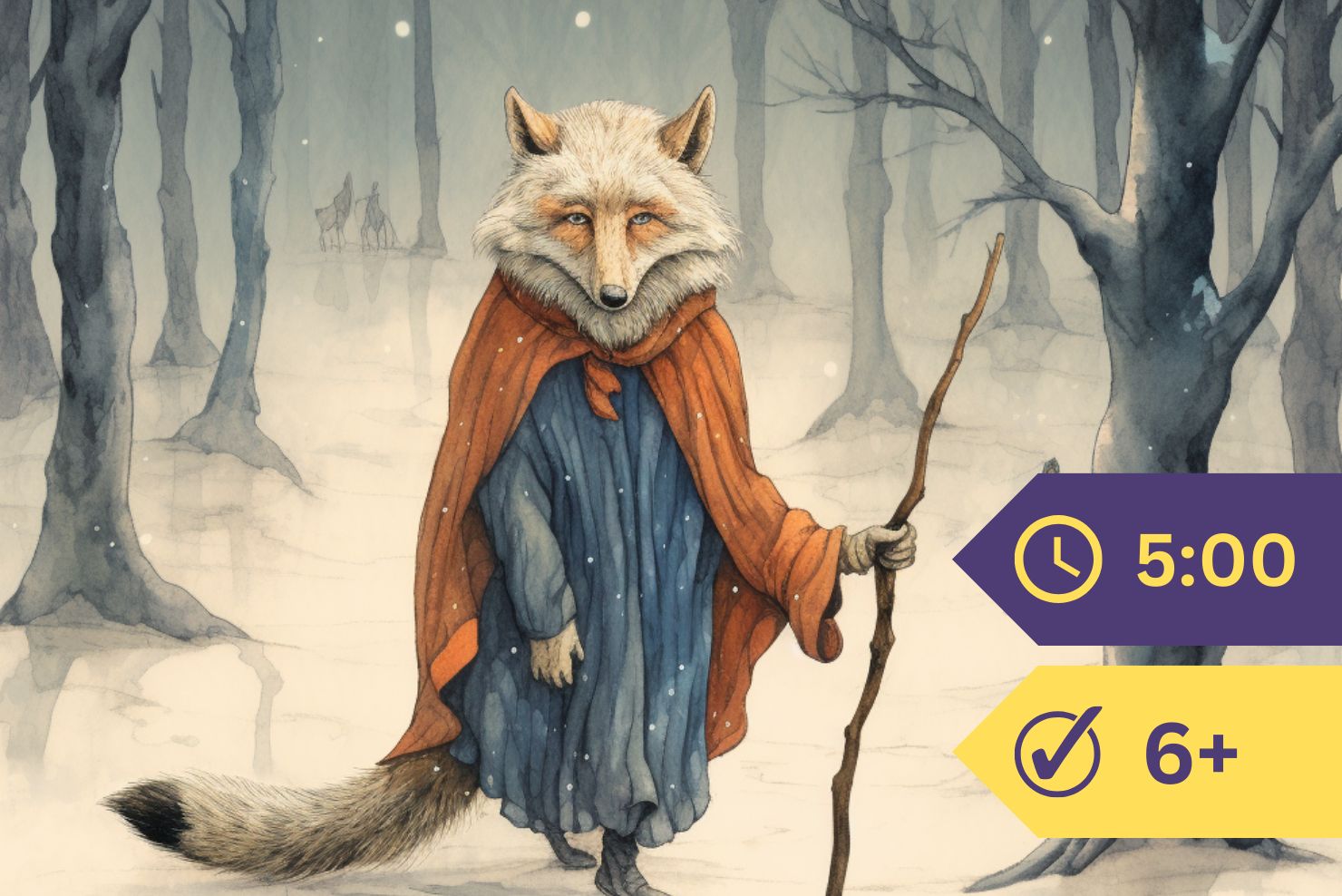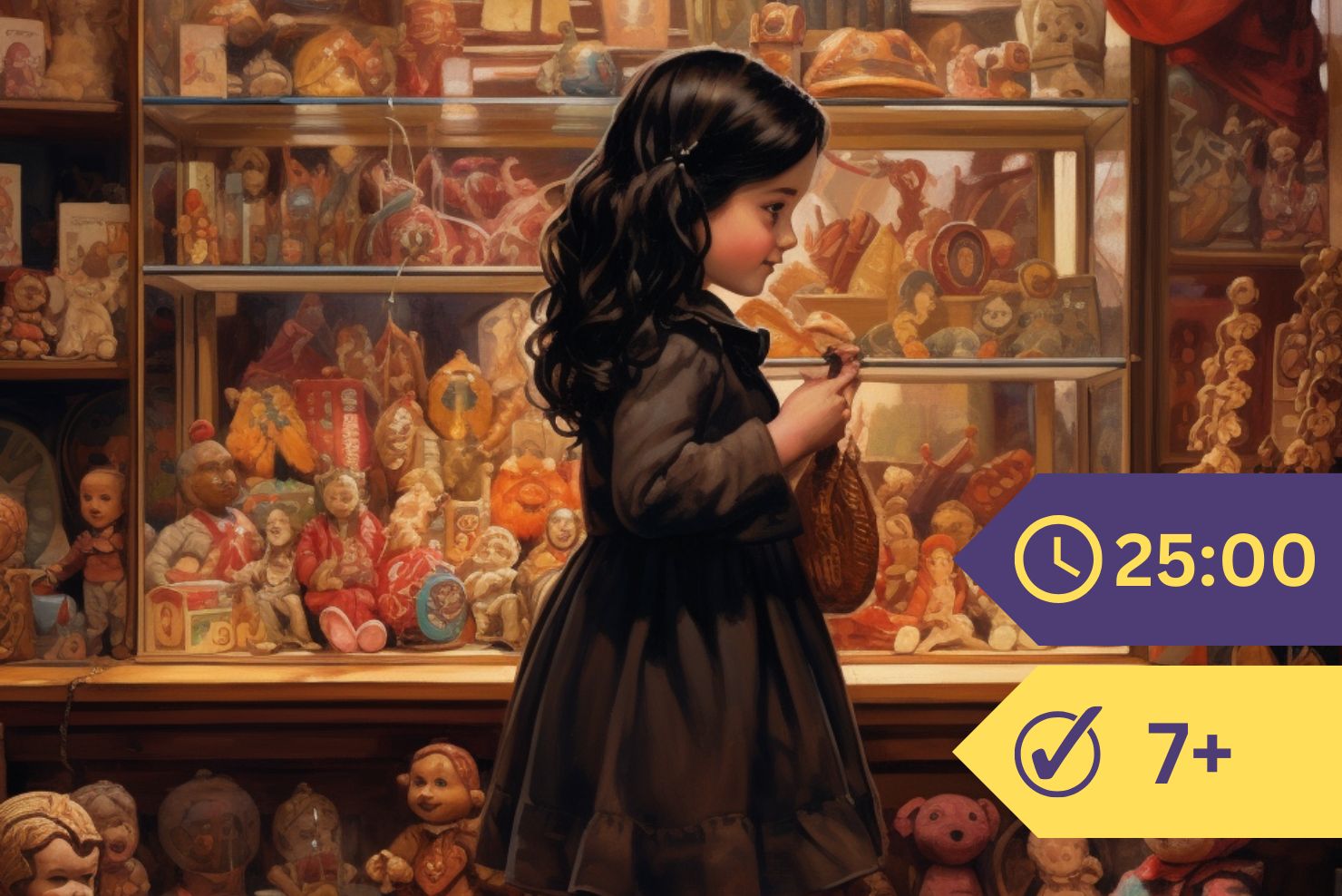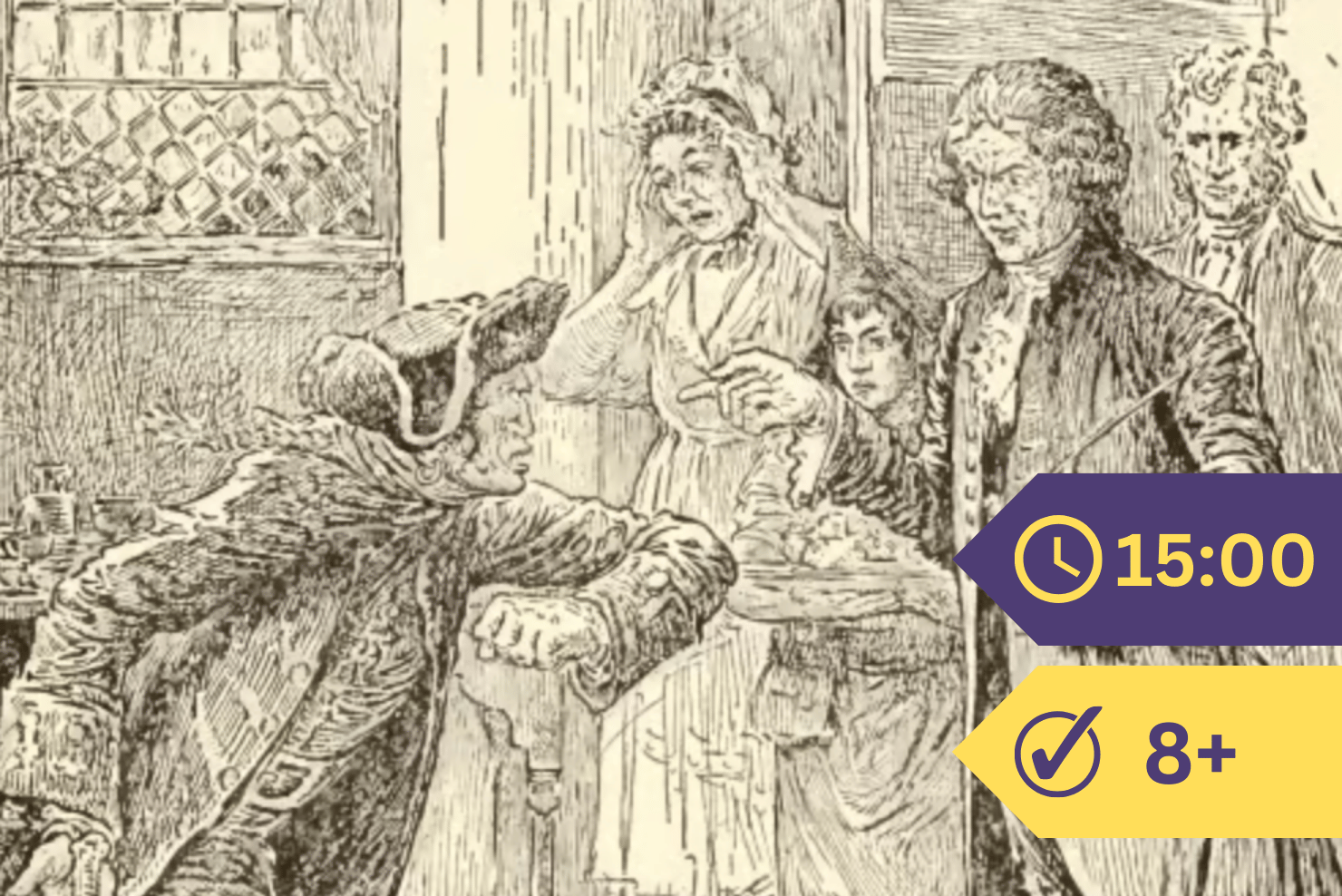“Here!” cried Alice, but she quite forgot how large she had grown in the last few minutes, and jumped up in such haste that the edge of her skirt tipped the jury box and turned them all out on the heads of the crowd below; and there they lay sprawling about, which made her think of a globe of goldfish which she had upset the week before.
“Oh, I beg your pardon!” she said, and picked them up and put them backed in the jury box as fast as she could.
“The trial can not go on,” said the King in a grave voice, “till all the men are back in place—all,” he said with great force and looked hard at Alice.
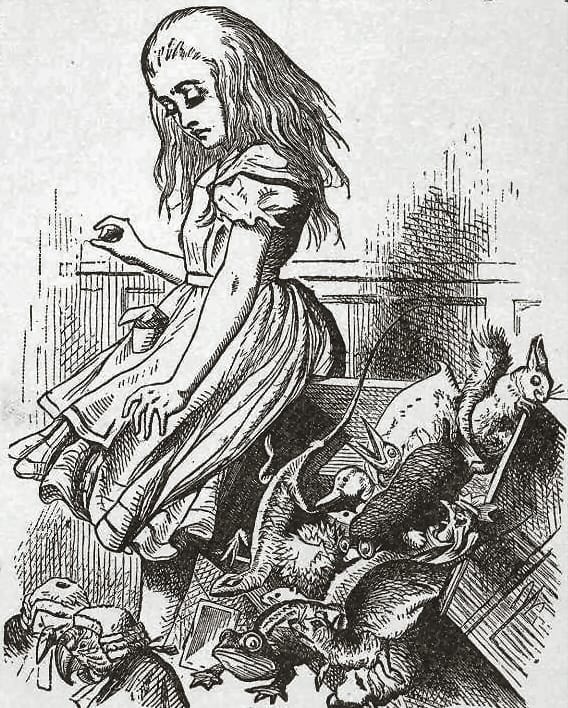
She looked at the ju-y box and saw that in her haste she had put the Lizard in head first and the poor thing was waving its tail in the air, but could not move. She soon got it out and put it right; “not that it matters much,” she thought; “I should think it would be quite as much use in the trial one way up as the other.”
As soon as their slates and pencils had been handed back to them, the jury set to work to write out an account of their fall, all but the Lizard, who seemed too weak to write, but sat and gazed up into the roof of the court.
“What do you know of this case?” the King asked Alice.
“Not one thing,” said Alice.
“Not one thing, at all?” asked the King.
“Not one thing, at all,” said Alice.
“Write that down,” the King said to the jury.
The King sat for some time and wrote in his notebook, then he called out, “Silence!” and read from his book, “Rule Fortytwo. Each one more than a mile high to leave the court.”
All looked at Alice.
“I’m not a mile high,” said Alice.
“You are,” said the King.
“Not far from two miles high,” added the Queen.
“Well, I shan’t go,” said Alice, “for I know that’s a new rule you have just made.”
“It’s the first rule in the book,” said the King.
“Then it ought to be Rule One,” said Alice.
The King turned pale and shut his notebook at once.
“The jury can now take the case,” he said in a weak voice.
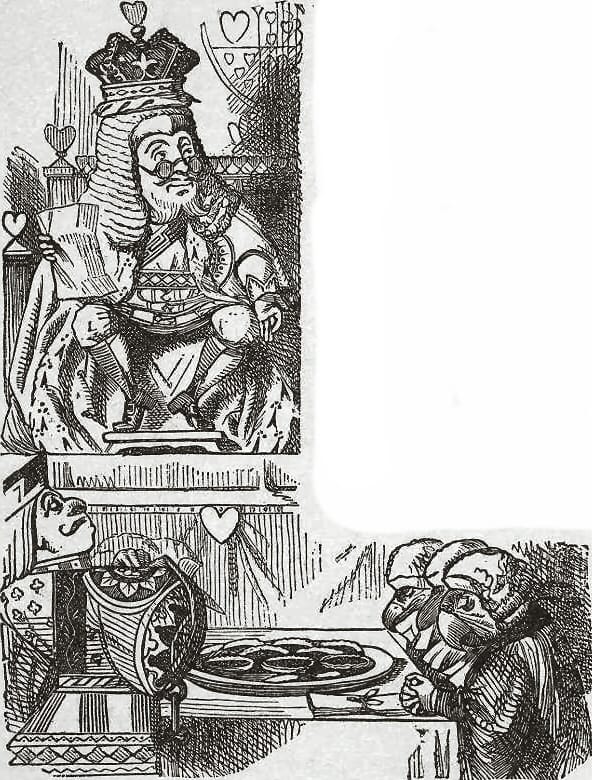
“There’s more to come yet, please your majesty,” said the White Rabbit, as he jumped up; “this thing has just been picked up.”
“What’s in it?” asked the Queen.
“I haven’t read it yet,” said the White Rabbit, “but it seems to be a note from the Knave of Hearts to some one.”
“Whose name is on it?” said one of the ju-rors.
“There’s no name on it,” said the White Rabbit; he looked at it with more care as he spoke, and added, “it isn’t a note at all; it’s a set of rhymes.”
“Please your majesty,” said the Knave, “I didn’t write it, and they can’t prove that I did; there’s no name signed at the end.”
“If you didn’t sign it,” said the King, “that makes your case worse. You must have meant some harm or you’d have signed your name like an honest man.”
All clapped their hands at this as it was the first smart thing the King had said that day.
“That proves his guilt,” said the Queen.
“It does not prove a thing,” said Alice, “Why you don’t so much as know what the rhymes are.”
“Read them,” said the King.
“Where shall I begin, your majesty?” the White Rab-bit asked.
“Why at the first verse, of course,” the King said looking quite grave, “and go on till you come to the end; then stop.”
The White Rabbit read.
“That’s the best thing we’ve heard yet,” said the King, rubbing his hands as if much pleased; “so now let the jury—”
“If one of you can tell what it means,” said Alice (she had grown so large by this time that she had no fear of the King) “I should be glad to hear it. I don’t think there’s a grain of sense in it.”
The jury all wrote down on their slates, “She doesn’t think there’s a grain of sense in it.” But no one tried to tell what it meant.
“If there’s no sense in it,” said the King, “that saves a world of work, you know, as we needn’t try to find it. And yet I don’t know,” he went on, as he spread out the rhymes on his knee, and looked at them with one eye: “I seem to find some sense in them—’said I could not swim’—you can’t swim, can you?” he added, turning to the Knave.
The Knave shook his head with a sigh. “Do I look like it?” he said. (Which it was plain he did not, as he was made of card board.)
“All right, so far,” said the King, and he went on: “‘We know it to be true’—that’s the jury, of course—’I gave her one, they gave him two’—that must be what he did with the tarts, you know—”
“But it goes on, ‘they all came back from him to you,'” said Alice.
“Why, there they are,” said the King, pointing to the tarts. “Isn’t that as clear as can be? Then it goes on, ‘before she had this fit’—you don’t have fits, my dear, I think?” he said to the Queen.
“No! no!” said the Queen in a great rage, throwing an inkstand at the Lizard as she spoke.
“Then the words don’t fit you,” he said, and looked round the court with a smile. But no one spoke. “It’s a pun,” he added in a fierce tone, then all the court laughed.
“Let the jury now bring in their verdict,” the King said.
“No! no!” said the Queen. “Sentence first—then the verdict.”
“Such stuff!” said Alice out loud. “Of course the jury must make—”
“Hold your tongue!” screamed the Queen.
“I won’t!” said Alice.
“Off with her head!” shouted the Queen at the top of her voice. No one moved.
“Who cares for you?” said Alice. (She had grown to her full size by this time.) “You are nothing but a pack of cards!”
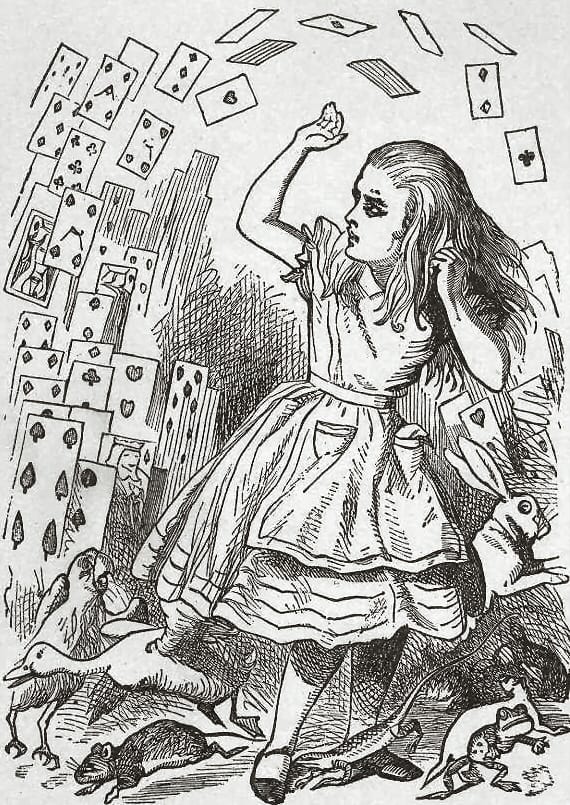
At this the whole pack rose up in the air and flew down upon her; she gave a little scream and tried to beat them off—and found herself lying on the bank with her head in the lap of her sister, who was brushing away some dead leaves that had fluttered down from the trees on to her face.
“Wake up, Alice dear,” said her sister; “why what a long sleep you have had!”
“Oh, I’ve had such a strange dream!” said Alice, and then she told her sister as well as she could all these strange things that you have just read about; and when she came to the end of it, her sister kissed her and said: “It was a strange dream, dear, I’m sure; but run it’s time for dinner; it’s getting late.”
So Alice got up and ran off, thinking while she ran, as well she might, what a wonderful dream it had been.

